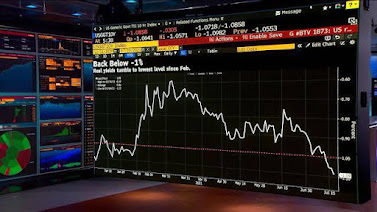Stock market
STOCK MARKET
What is a stock market?
• A stock market or equity market is a market for the
trading of company stock (shares) and derivatives at
an agreed price.
What is a share/stock/equity?
• Shares represent a fraction of ownership
in a business.
The common feature of all these is equity
participation. Different classes of shares have different
voting rights.
• Ownership of shares is documented by a legal
document that specifies the amount of shares owned
by the shareholder, and other specifics of the
shares, such as the par value or the class of the shares
(if any).
•These days these stock certificates have been
dematerialized. (No physical document!)
Trading
• The shares of a company are in general be transferrable
from one shareholder to another . This leads to buying
and selling of shares termed as trading.
•Investors usually buy and sell shares on the exchanges
through a stock brokers registered with the exchange.
• A company may list its shares on an exchange by
meeting and maintaining the listing requirements of a
particular stock exchange.
Share price determination
•At any given moment, the price is strictly a result of
supply and demand. The supply is the number of
shares offered for sale at any one moment. The
demand is the number of shares investors wish to buy
at exactly that same time.
• Actual trades are based on an auction market model
where a potential buyer bids a specific price for a stock
and a potential seller asks a specific price for the stock.
When the bid and ask prices match, a sale takes place.
Through a stock broker: They arrange the transfer of stock
from a seller to a buyer. Both the buyer and the seller of the
share pay commission known as brokerage to the broker.
• Directly from the company:
If at least one share is owned, most companies will allow
the purchase of shares directly from the company
through their investor relations departments.
A direct public offering is an initial public
offering (IPO) in which the stock is purchased directly
from the company, usually without the aid of brokers.
When to invest in a particular stock?
Fundamental analysis refers to analyzing companies
by their financial statements found in SEC
Filings, business trends, general economic conditions
and the growth prospects of company's market
segment. A few parameters which are looked upon
include Price to Earnings (PE) Ratio, Price to Book
Value ratio, Equity to Debt ratio.
TECHNICAL ANALYSIS
Technical analysis studies price actions in markets
through the use of charts and quantitative techniques
to attempt to forecast price trends regardless of the
company's financial prospects. A few examples include
Trend lines, Bollinger Bands, Oscillators etc.
When to invest in a particular stock?
Fundamental analysis refers to analyzing companies
by their financial statements found in SEC
Filings, business trends, general economic conditions
and the growth prospects of company's market
segment. A few parameters which are looked upon
include Price to Earnings (PE) Ratio, Price to Book
Value ratio, Equity to Debt ratio.
• Technical analysis studies price actions in markets
through the use of charts and quantitative techniques
to attempt to forecast price trends regardless of the
company's financial prospects. A few examples include
Trend lines, Bollinger Bands, Oscillators etc.
ype here to search
Fundamental Analysis
P/E Ratio= Pricepershare /AnnualEarningspershare
P/BRatio= MarketCapitalizaion/Tangibleassets-liabilities
Importance and role of the stock markets
•Raising capital for businesses
• Government capital-raising for development projects
• Mobilizing savings for investment
• Facilitating company growth through acquisitions
• Creating investment opportunities for small investors
• Barometer of the economy
Stock markets and the financial risk
Sometimes the market seems to react irrationally to economic or financial news. This may' temporarily move financial prices away from their long term aggregate price 'trends'. (Positive or up trends are referred to as bull markets; negative or down trendsare referred to as bear markets). Over-reactions may Occur--so that excessive optimism may drive prices unduly high or excessive pessimism may drive prices unduly low.
Stock Market Index
The movements of the prices in a market or section of
a market are captured in price indices called stock
market indices. Such indices are usually market
capitalization weighted, with the weights reflecting
the contribution of the stock to the index. Examples of
index include Sensex, Nifty, DJIA, S&Pgoo, Nikkei etc.
• The constituents of the index are reviewed frequently
to include/exclude stocks in order to reflect the
changing business environment.








Great information bhaiya ji. Keep it up.
ReplyDelete🙏🏻
DeleteNice content and good work
ReplyDelete🙏🏻
DeleteImpressive content 👍
ReplyDeleteNicee
ReplyDeleteMy eyes have been opened to the world
ReplyDelete😁😊👍🏻
DeleteGood work
ReplyDeleteGreat Effort!
ReplyDeleteGood work
ReplyDeleteLage raho bhai
All the best👍💯